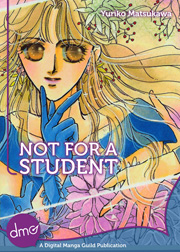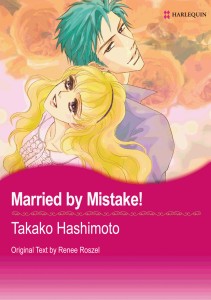Weekly Astro Boy Magazine Vol. 1
I was intrigued when Emanga.com announced that they would be releasing an Astro Boy magazine. I’m feeling a bit nostalgic for manga magazines at this point, with the demise of print anthologies. I’ve read some Tezuka, but I’m definitely not familiar with all of his works. The magazine format for Tezuka works very well, because his art and storytelling style varies so much with the titles presented in the magazine, it is interesting to compare and contrast the differences between his different titles in this format.
I haven’t read much Astro Boy before, but the storyline for inclusion in the first issue of this manga magazine is a strong one, as it is “The Greatest Robot on Earth,” where the robot Pluto created to battle all the other great robots that exist, until he is hailed as the supreme robot. This storyline is what Naoki Urasawa used for his manga series Pluto. Astro Boy tangles with Pluto for a little bit, but his creator calls him off. Astro Boy responds to the existence of the new robot by requesting an upgrade of his own power. Astro Boy really displays the virtue of simplicity. The robot designs are so distinct, and the action in Astro Boy is so clear and easy to follow, it makes me think that some of the detail and opaque action in modern manga has really missed the mark.
Phoenix is the next title featured in this magazine, and this is a real treat because I believe some of the print volumes released by Viz are now out of print. The story comes from the fourth volume of Phoenix, called Karma. It is easy to see why Phoenix is often called Tezuka’s masterwork. This chapter featured the story of a boy who was injured just after being born, becoming a monster due to the harsh treatment from his fellow villagers. He encounters a sculptor in the woods and damages one of his arms. The sculptor finds refuge in a temple and begins to reach a different stage of consciousness as he attempts to take up art again. Reading Phoenix itself is a bit of a philosophical experience, as the characters encounter each other in this fable-like story, with stylized depictions of nature inter cut with both action and personal reflection.
The rest of the book is rounded out by shorter chapters for Dororo and Black Jack. It was a bit difficult for me to get a handle on Dororo just due to the small page count. Black Jack, I automatically read with feelings of affection, because the two-fisted surgeon is one of my favorite Tezuka characters. Overall, I really enjoyed the opportunity to read different Tezuka works back to back. It is a bit different than diving into a full volume of manga, but it really gives the reader an appreciation for the variations in art and theme that is expressed in Tezuka’s manga. This is definitely worth checking out if you don’t have an extensive Astro Boy collection and especially if you want an accessible way of reading Phoenix.
Electronic access provided by the publisher





Recent Comments